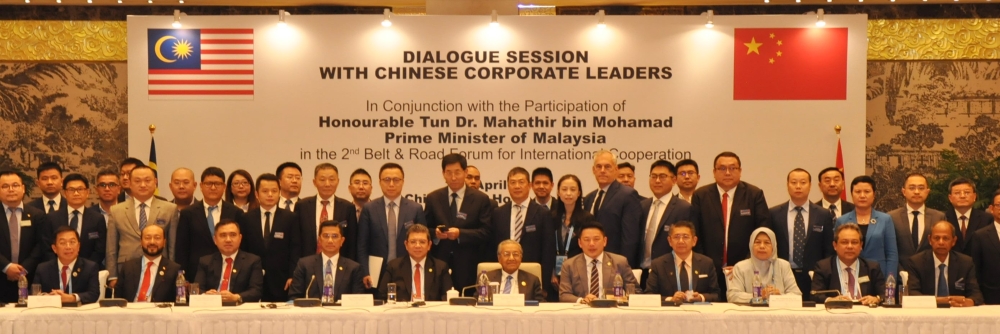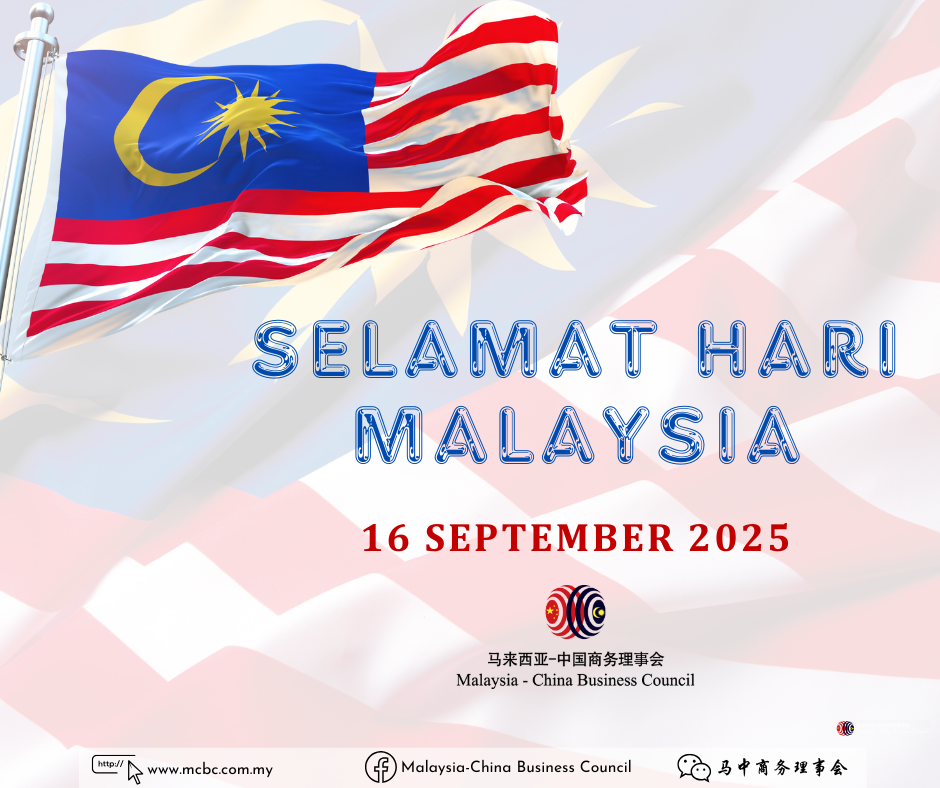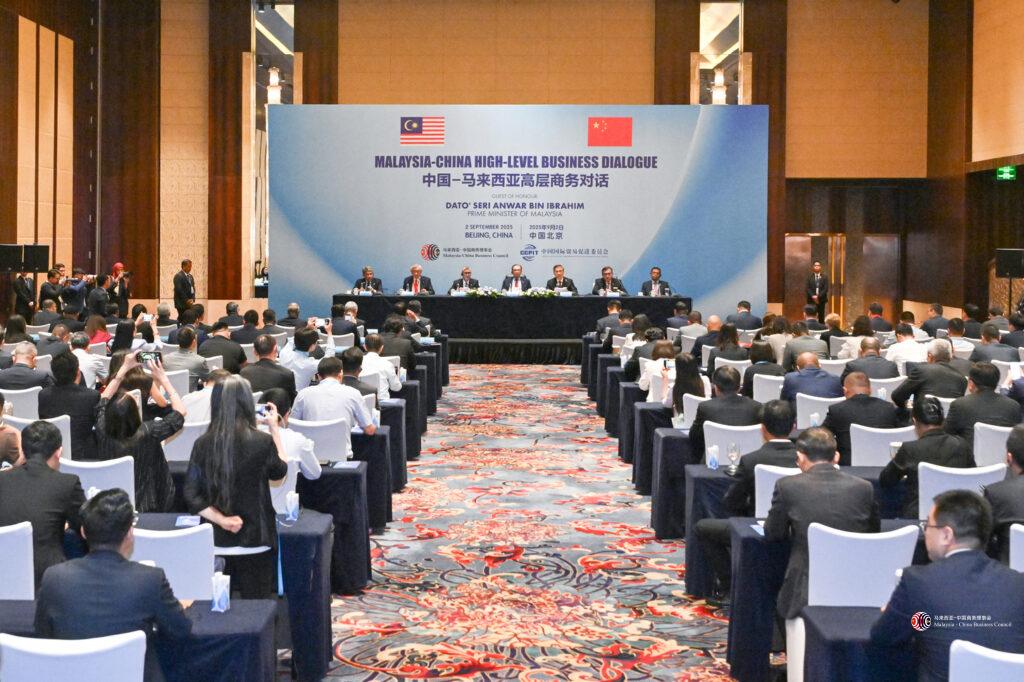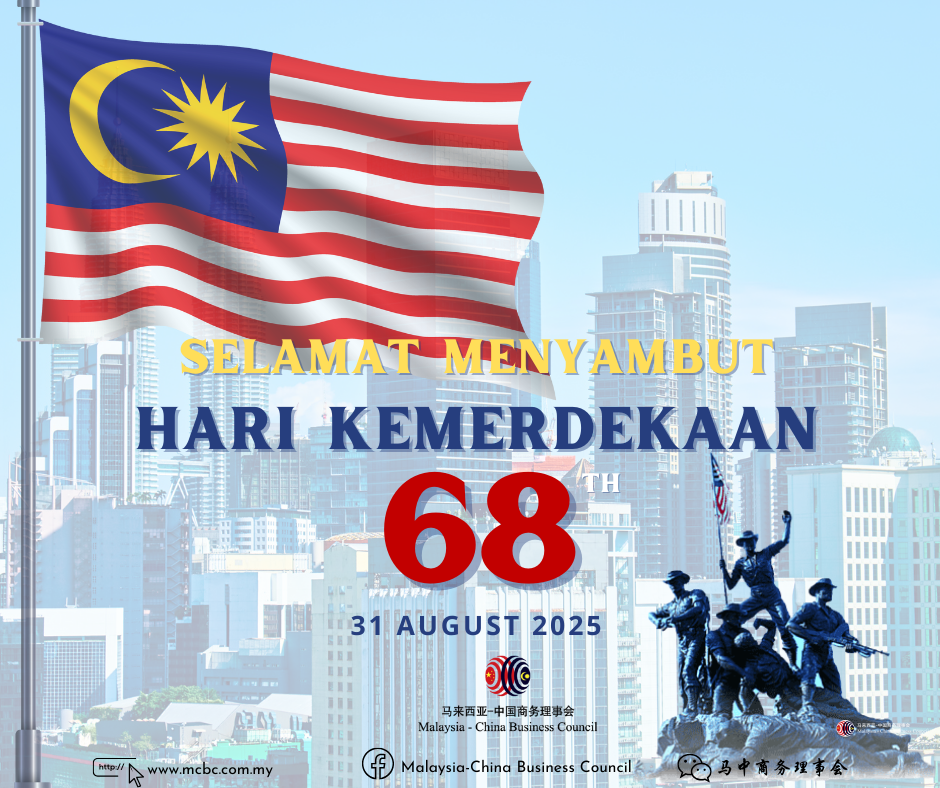BEIJING: Chinese companies which have been waiting for a signal on the future of Malaysia and China’s bilateral relationship received the clearest indication yet from Tun Dr Mahathir Mohamad today.
“Malaysia is a friend of China. We believe in being business friendly to all countries in the world,” the prime minister told Chinese corporate leaders at a dialogue held in conjunction with his working visit to Beijing for the Belt and Road Forum for International Cooperation (BRF).
He invited Chinese businessmen to come to Malaysia and experience for themselves what the country has to offer.
“Malaysia is a stable, multiracial country with three major races living in peace.
“We are a friendly country, a friend of China, and see a great future for Malaysia-China relations,” said Dr Mahathir, who had earlier been labelled “pro-Japan, anti-China” after several mega projects with the dominant Asian economic superpower were either cancelled or reviewed when Pakatan Harapan (PH) took over as the ruling government.
He has refuted such claims, saying that he has defended China on international platforms on many occasions.
Another good sign was the successful renegotiation of the previously stalled multibillion ringgit East Coast Rail Link (ECRL) project that had caused uncertainty in the bilateral relationship.
On Chinese companies in lopsided deals with the previous government as brought up by a participant during the dialogue, Dr Mahathir said the matter could be reviewed. “We will look to see what we can do to reduce costs.”
Outlining Malaysia’s attributes to the businessmen present, Dr Mahathir said Malaysia was stable and people could be comfortable with its rules and laws.
“We don’t change very much. Rules and laws have remained the same even though the government has changed. The previous government was in power for 61 years.”
Even so, he pointed out that policies and rules with regard to foreign investment have not changed.
The corporate leaders present asked the prime minister questions on a range of other issues, among them Malaysia’s position on renewable energy, the many festive public holidays which they claimed affected productivity, the setting up of industrial parks, and the use of electric cars.
On festive breaks, Dr Mahathir said they were important to multiracial, multi-religious Malaysians.
“I am sure you can adjust to the many holidays, probably by giving overtime or working on Saturdays and Sundays.”
He, however, acknowledged that this scenario was experienced by the government, too.
“We will see how we can tackle this.”
He also underscored Malaysia’s efforts in making the switch from conventional energy sources to renewable energy such as hydro power, solar and even wind.
“But not nuclear,” he stressed.
To another question, Dr Mahathir said the government would consider revising individual and corporate income tax rates if it enabled Malaysia to become more competitive.
“We have no plans to raise taxes, but are looking at ways to reduce taxes. Malaysia, for example, reduced taxes for the import of luxury goods, this will make more people come to buy things here as they are cheap.”

(New Straits Times, 26 April 2019)




